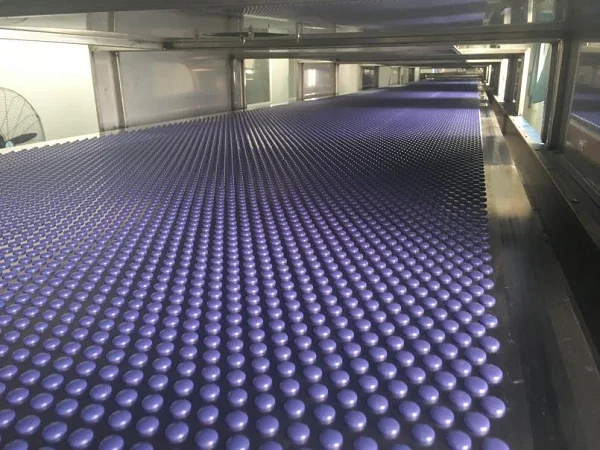- This topic is empty.
-
AuthorPosts
-
2025-04-28 at 11:32 pm #84107
Sulphur granulation is a crucial process in many industrial sectors, where sulfur is processed and transformed into granules for a wide range of uses. From agriculture to chemical manufacturing and energy production, sulphur granulation plays a vital role in enhancing the performance, efficiency, and environmental sustainability of various products and processes. The granulation of sulfur is necessary to ensure its safe handling, ease of transportation, and effectiveness in diverse applications. Sulfur, in its raw form, is a vital industrial material used for producing fertilizers, pesticides, and a variety of other chemicals. However, its handling in bulk can be challenging due to its tendency to form dust or its reactive nature. Granulating sulfur transforms it into a more manageable and safer form, enabling its widespread use in industries that demand high purity and controlled sulfur content. This article Little Sky delves into the industrial applications of sulphur granulation.
What is Sulphur Granulation?

Sulphur granulation refers to the process of converting liquid sulfur into solid, free-flowing granules that are easy to store, transport, and use in industrial processes. The process involves several techniques designed to cool and solidify the molten sulfur, typically through methods such as prilling, pelletizing, or other mechanical granulation techniques. The resulting sulfur granules vary in size, typically ranging from 1 to 5 millimeters, and are uniform in shape, which makes them ideal for specific applications.
Sulfur granules are created by melting sulfur at a temperature of around 130°C and then cooling it quickly to form solid particles. These granules are designed to have consistent physical properties, including size, shape, and density. The granulation process helps to reduce the formation of sulfur dust, a major safety concern when handling sulfur in bulk. Additionally, the granules are often coated to improve their handling and increase their resistance to moisture, which enhances their stability during storage and transport.
The sulphur granulation process can take place in several different types of equipment, including granulation drums, rotary coolers, and prilling towers. Each method has its own set of advantages depending on the scale of production and the specific needs of the industry in question.
Industrial Applications of Sulphur Granulation
Agriculture
The most significant use of sulphur granulation is in the agricultural industry, where sulfur is a vital nutrient in fertilizers. Sulfur is a necessary component for plants to produce proteins and enzymes, and the controlled release of sulfur from granules helps provide consistent nutrition for crops. This process enhances soil health, increases crop yields, and helps maintain sustainable farming practices. Granulated sulfur is often mixed with ammonium sulfate to produce fertilizers that release sulfur slowly over time, ensuring a steady supply of nutrients for plants.
Chemical Manufacturing
Sulfur is used in the production of numerous chemicals, including sulfuric acid, sulfur dioxide, and other sulfur-based compounds. The process of sulphur granulation ensures that sulfur is in an optimal form for chemical reactions, improving the efficiency of these processes. The uniformity of sulfur granules helps to produce consistent, high-quality chemicals, which is essential in industries like petrochemicals, pharmaceuticals, and specialty chemicals.
Energy Production
In the energy sector, sulfur is used in refining processes, including the desulfurization of petroleum products and the removal of sulfur from fuels. Granulated sulfur plays a significant role in these processes, as it helps control the sulfur content of fuels to meet environmental regulations. The granulation process also ensures that sulfur can be handled more safely and efficiently in large quantities, reducing the risk of harmful emissions during energy production.
Pharmaceuticals
Sulfur is an important ingredient in the treatment of various skin conditions, such as acne and eczema. The sulphur granulation process is used to create sulfur-based products that can be incorporated into ointments and creams. The granules are easier to handle and mix, allowing for precise formulation and dosage, which is essential for ensuring the safety and efficacy of these pharmaceutical products.
Mining and Metallurgy
Sulfur is used in the extraction of metals such as copper and zinc, as well as in processes like ore refining. The sulphur granulation process helps to make sulfur more effective for use in these applications by ensuring that it is easy to handle and can be added to processes in precise quantities. This improves the overall efficiency of mining and metallurgy processes.
Sulphur granulation is a vital process that enhances the handling, safety, and efficiency of sulfur in a range of industries. By transforming sulfur into uniform, easy-to-handle granules, manufacturers can ensure that sulfur is used effectively and safely in applications ranging from agriculture to chemical production and energy. The process not only improves sulfur's physical properties but also minimizes environmental impact and ensures worker safety. With its broad industrial applications and benefits, sulphur granulation continues to be a cornerstone of modern manufacturing, helping industries optimize their operations and improve product quality.
https://www.th-littlesky.com/Sulfur-Granulator
http://www.th-littlesky.com
Little Sky Mechanical Engineering Kabushiki Kaisha -
AuthorPosts
- You must be logged in to reply to this topic.


